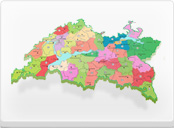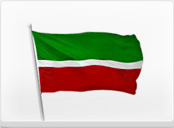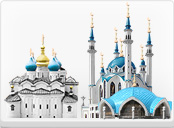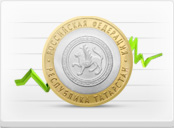Welcome to the Republic of Tatarstan
Welcome to the Republic of Tatarstan
 Tatarstan is situated at the confluence of two large rivers – the Volga and the Kama, being a kind of bridge connecting Russia’s European and Asian parts.
Tatarstan is situated at the confluence of two large rivers – the Volga and the Kama, being a kind of bridge connecting Russia’s European and Asian parts.
Covering an area of 67,800 km2, the republic is bigger than such European countries as Belgium and the Netherlands and is approximately equal to Ireland.
Throughout many centuries, Tatars (53,2%) and Russians (39,7%), Chuvashes and Udmurts, Mordovians and Maris, Ukrainians and Bashkirs - altogether representatives of more than 173 ethnic origins – have lived in Tatarstan in peace and harmony. Today, its population is 3.8 million.
Tatarstan is a dynamically developing region, with its success being based on a solid foundation of economic stability. The republic is an oil production and petrochemical center; it makes KAMAZ heavy-duty trucks and Mi helicopters; it doesn’t forget about agriculture being one of Russia’s leaders.
As a meeting point of civilizations, a symbolic crossroads of eastern and western, Asian and European religious and cultural traditions, Tatarstan has accumulated extensive experience in maintaining inter-ethnic and inter-faith accord. This experience serves a perfect background for the republic to develop its contacts with the world, build trade, scientific and cultural links.
Tatarstan’s capital city of Kazan |
|
 |
The capital of the republic is the city of Kazan with a population of over 1.1 million. In 2005, it celebrated its 1000th anniversary. More than forty percent of its residents are young people for whom Tatarstan offers an outstanding opportunity to attend its forty universities, including Kazan University that celebrated its 200th anniversary in 2004 and received the status of a federal university in 2009, Kazan National Research Technical University and Kazan National Research Technological University. |
Tatarstan is a historical region |
|
 |
Standing on the crossroads of trade routes, Tatarstan has always played a role of a political, trade and economic center. |
 |
|
Culture |
|
 |
Among the republic’s famous cultural events are large international festivals such as the Feodor Chaliapin International Opera Festival, the Rudolf Nuriev International Classical Ballet Festival, the Europe-Asia Contemporary Music Festival, the Rashit Vagapov Tatar Song Festival. Each fall, Kazan hosts the Kazan International Muslim Film Festival. The Creation of the World Music Festival has been held here annually since 2008. |
Religion |
|
 |
Islam and Orthodox Christianity are traditional religions in Tatarstan, while Catholicism, Protestantism, Judaism and other faiths are also presented here. |
Sports |
|
 |
The development of sports, both professional and mass, is a priority for the republic. |
Photographs from http://www.kzn.ru, http://gokazan.ru, http://yanarysh.tatarstan.ru/, http://www.photokzn.ru and Andrew Shlykoff were used.
When you visit Tatarstan, do not forget:
- To walk along the Kazan Kremlin and stop at the Annunciation Cathedral and the Kul Sharif Mosque
- To taste Tatar national dishes including a triangular pasty ‘treugolnik’ stuffed with meat and potato, a kystybyi thin pie with mashed potato or millet porridge and a famous desert ‘chak-chak
- To visit the ancient town of Bolgar, the island town of Sviyazhsk, the Raifa Monastery, Yelabuga
- To take part in the Tatar National Festival Sabantui or the Russian Folk Festival Karavon and the Day of the Republic’s street festivities
- To visit museums (Tatarstan National Museum, Hermitage-Kazan Center, Fine Arts Museum. National Gallery)
- To see the Kazan icon of the Mother of God at the Elevation of the Cross Church and Kazan mosques built before the 1917 revolution
- To attend a concert at the Salikh Saidashev Grand Concert Hall or the Tatar Philharmonic Hall or a performance at one of Kazan’s theatres
- To buy a souvenir, i.e. a national embroidered cap
- To take a boat trip on the River Volga and visit the Kazan water park
- To learn several Tatar words, i.e. isenmesez – hello, rakhmat – thank you
-
 Educational portal of RT
Educational portal of RT
-
 Investment portal of RT
Investment portal of RT
-
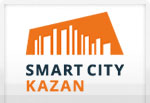 SMART City Kazan
SMART City Kazan
-
 State Television and Radio Broadcasting Company "Tatarstan"
State Television and Radio Broadcasting Company "Tatarstan"
-
 Online services of Russian Pension Fund
Online services of Russian Pension Fund
-
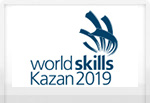 45th WorldSkills Competition 2019
45th WorldSkills Competition 2019
-
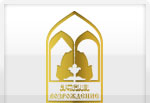 Fund «Yanarysh»
Fund «Yanarysh»
-
 Business centre of RT
Business centre of RT
-
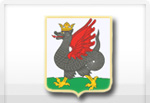 The City of Kazan
The City of Kazan
-
 Kazan City Tourist Portal
Kazan City Tourist Portal
-
 Tatarstan Book House
Tatarstan Book House
